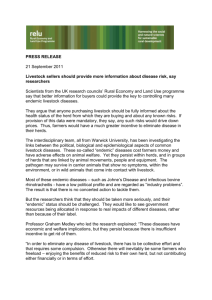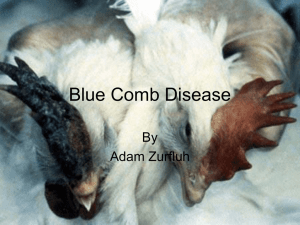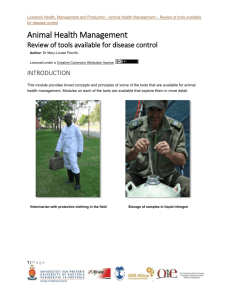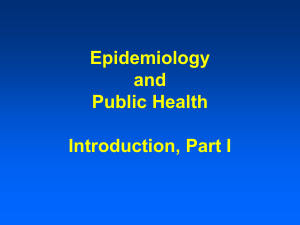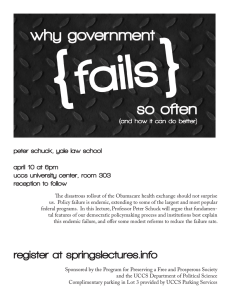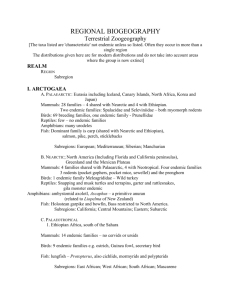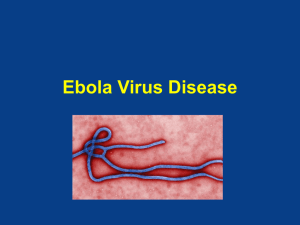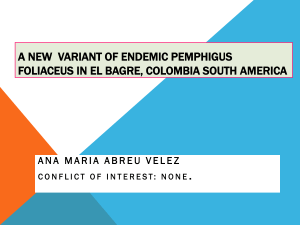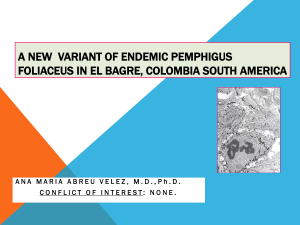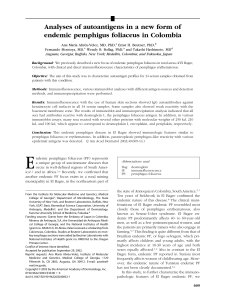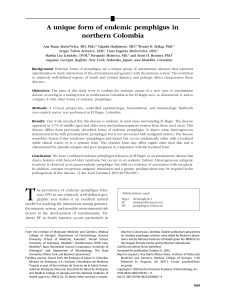SVEPM Workshop Governance of Livestock Disease
advertisement
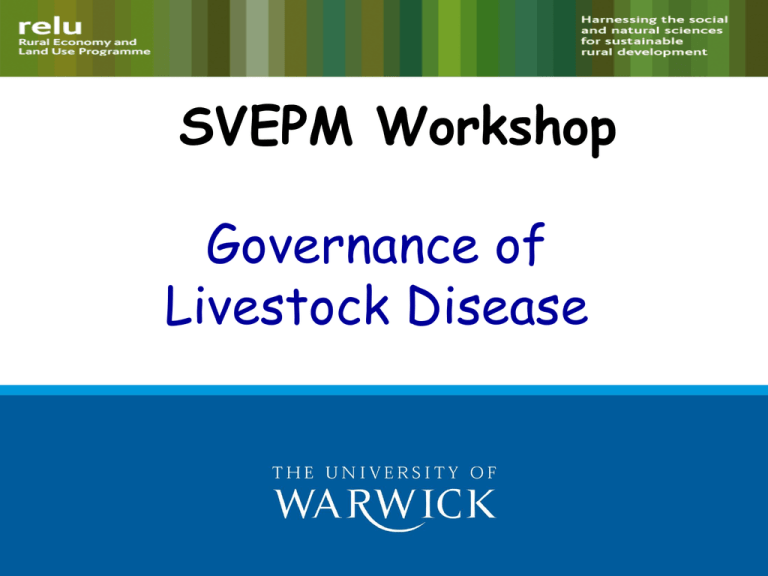
SVEPM Workshop Governance of Livestock Disease Introduction • GoLD RELU project – Interdisciplinary – Endemic livestock (esp. cattle) disease • What determines the endemicity / impact / control of endemic disease? – – – – Epidemiology Economics Politics Law Plan • Graham Medley: introduction 9:30 – + discussion • Wyn Grant: politics – + discussion • Habtu Weldegebriel: economics – + discussion Coffee: 10:30 – 11:00 • Wyn Grant: law – + discussion • Laura Green: conclusions – + discussion 12:00 • David Carslake (John McEldowney, Justin Greaves, Jonathan Cave) Interdisciplinarity • Problem framing – What is the problem with livestock disease? • Endemic disease can be seen as problem in the spheres of: – – – – Health / welfare Political (e.g. bTB) Economic : reduces profitability & profit Legal : international trade “An Epidemiological Problem” • Animals would be better off without disease • For most (all) endemic diseases we have sufficient understanding to eliminate from a defined population • Even if knowledge is lacking there is sufficient understanding to address through appropriate research • If only we were in charge… – But the economics are often against us “An Economic Problem” • To whom? – Farmers, industry, nation • Only when considered in competition – If every cow has JD, then its impact on productivity is exactly equivalent to genetic constraints – There is incentive to be the first to increase productivity and incentive to reduce the adoption by others • Because infectious diseases move between farms / industries / nations none is independent Costs to farmers of a bTB herd breakdown (HBD) • Bennett and Cooke (2006) Vet. Rec. 158: 429 • An on-farm survey of 151 cattle farmers • For 90% of HBD, cost of HBD was: – < £18,513 (dairy) and < £11,462 (beef) – Range: £229 to £103,817 • After compensation, a majority was left with net losses • A minority of farmers made a profit from HBD • Anecdotally, these are “experienced” farmers • Endemic disease need not be an economic problem, rather economic considerations change the way that endemic disease is viewed and dealt with “A Political Problem” • If “collective” action is required to control endemic infectious disease, then it requires interactions between stakeholders / actors • DEFRA has been a key actor – But has failed to control bTB partly because of inconsistent stakeholder group objectives – Has not regarded endemic disease as important unless international economic competition, international legal requirement or human health “A Legal Problem” • Epidemiology, economics and politics can only act through legal frameworks • Legal systems in EU are changing from “command and control” to regulatory governance – This will make endemic infectious disease control even more complex – Especially as different endemic diseases are not independent – But does provide an opportunity to create a system that can control endemic disease Governance of Livestock Disease • We have learnt to live with endemic disease • So the EEPL systems adapt to their presence and they become “more” endemic… • Can we understand how each of the EEPL affects and is affected by its EEPL context • How should we do this? • What is the answer?
